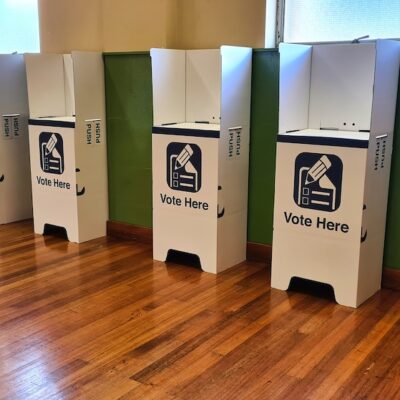When it comes to sex work, the legal landscape across Australia is anything but uniform. From strict regulations and criminalisation to more progressive, decriminalised models, the laws governing sex work can be as varied as the states and territories themselves. For those wondering, “Is prostitution illegal in Australia?” the answer is complex and depends heavily on the specific region in question.
Key pieces of legislation such as the Summary Offences Act 1988, the Prostitution Act 1999, and regulations regarding licensed brothels play significant roles in shaping the legal framework for sex work in different areas.
Is Prostitution Illegal in Australia? Getting to Know the Terminology in Sex Work
Understanding the world of sex work can be challenging, particularly with all the jargon involved. If you’re asking, “Is prostitution illegal in Australia?” The answer varies by region. Let’s simplify some common terms to help you grasp the legal landscape.
| Term | Definition |
| Sex Work | This term covers a wide range of activities where sexual services are exchanged for money or other rewards. It’s more inclusive and respectful than the old term “prostitution.” |
| Brothel | A place where sex workers offer their services. The operators manage the premises and take a cut from the workers’ earnings for providing the space. |
| Escort Agency | A matchmaking service for sex workers and clients. An escort agency arranges meetings and takes a fee or a percentage of the earnings. The sex workers using these agencies are known as “escorts.” |
| Private Sex Work | When sex workers go solo, managing their own clients without the middleman. This can be divided into “in-calls,” where clients visit the worker’s place (like their home or a hotel), and “out-calls,” where the worker goes to the client’s location. |
| Street-Based Sex Work | Involves meeting clients in public spaces. It’s more visible and comes with higher risks, including the chance of being charged with solicitation, which is asking for business in public. |
| Solicitation | The act of offering sexual services in a public space in exchange for money or other rewards. This is often regulated and may be illegal in certain areas, leading to legal charges if violated. |
| Legal Status | The legality of sex work varies by region in Australia. Some areas have legal frameworks that regulate sex work, while others may have partial or complete prohibitions. |
| Decriminalisation | The process of removing criminal penalties from sex work, treating it as a legal and regulated activity rather than a criminal offence. |
| Regulation | Legal requirements and standards set by authorities for the operation of sex work establishments and the conduct of sex workers. This includes health checks, licensing, and safety measures. |
| In-Call | A form of private sex work where clients visit the sex worker’s place, which could be their home, a hotel, or another private location. |
| Out-Call | A form of private sex work where the sex worker visits the client’s location, such as their home, hotel, or another specified place. |
| Harm Reduction | Strategies and policies aimed at reducing the negative health, social, and legal impacts associated with sex work. This includes providing support services, health care, and legal protections for sex workers. |
| Human Trafficking | The illegal practice of recruiting, transporting, or harboring individuals through coercion, force, or deception for the purpose of exploitation, including in the sex industry. |
| Sex Worker Rights | Advocacy and legal movements focused on ensuring that sex workers have access to the same rights and protections as other workers, including safety, health care, and freedom from discrimination and violence. |
| Stigma | The societal disapproval and discrimination that sex workers often face, which can lead to marginalisation and lack of access to essential services and legal protections. |
| Sexual Exploitation | Taking advantage of individuals, often through coercion or manipulation, to engage in sexual activities for someone else’s benefit, typically in contexts where consent is compromised. |
| Prohibition | Laws and regulations that completely ban sex work, often leading to underground markets and increased risks for sex workers. |
| Legalisation | The process of making sex work a lawful activity under regulated conditions, often involving licensing, health checks, and safety standards. This is different from decriminalisation, as it imposes specific legal frameworks and controls. |
Different Models of Sex Work Regulation
When discussing sex work laws, people often mention different regulatory models. These models can sometimes oversimplify the differences between places using the same approach, but they’re still handy for understanding the basic frameworks.
Here are the most common models of sex work regulation:
- Fully Criminalised Model: This is where everyone involved in sex work—workers, clients, brothel, and escort agency operators—can be prosecuted. Many countries around the world still use this model, making sex work a risky business for all parties involved.
- Neo-Abolitionist or Partially Criminalised Model: Often called the “Swedish model” or “Nordic model,” this approach doesn’t criminalise the act of selling sex, but it does criminalise buying it. Additionally, anyone profiting from sex work, like brothel owners, can be prosecuted. Countries such as Sweden, Norway, and Canada have adopted this model.
- Legalisation or Licensing Model: Under this model, sex work is legal if it complies with specific regulations. This includes private sex work and the operation of brothels and escort agencies, but these activities must be licensed by a regulatory authority. If the rules aren’t followed, the activities become illegal, and enforcement falls to the police.
- Decriminalised Model: This model treats sex work like any other business, with no specific criminal or licensing laws targeting it. New Zealand is a notable example of this approach, where sex work is fully decriminalised and regulated through general business laws.
- No matter the model, criminal laws against sex trafficking, sexual slavery, and child prostitution remain in force to protect vulnerable individuals.
Sex Work Laws in New South Wales
New South Wales (NSW) stands out by adopting a decriminalised model for sex work, leading the way globally with this progressive approach.
In NSW, all forms of sex work are decriminalised. This includes services offered in brothels, through escort agencies, and both in-call and out-call private sex work. Sex workers here enjoy the same rights and protections under occupational health and safety laws as workers in any other industry.
Local councils play a significant role in regulating the location of sex work premises, such as brothels, ensuring they comply with zoning laws and community standards.
Street-based sex work is primarily decriminalised but comes with specific restrictions. Solicitation, for example, cannot occur near or within view of homes, schools, churches, or hospitals to maintain community comfort and safety.
Sex Work Laws in Queensland
Queensland uses a legalisation or licensing model to regulate sex work.
To run a brothel legally, operators must secure a licence from the Prostitution Licensing Authority. Operating without this licence is considered a criminal offence.
While private sex work is technically legal, numerous regulations severely restrict how sex workers can operate. Activities such as working in pairs or small groups, street-based sex work, and services provided by escort agencies or massage parlours are all criminalised.
Street-based sex work remains mostly illegal, adding another layer of complexity.
The Queensland Law Reform Commission has highlighted significant issues with the current licensing model, noting that it endangers sex workers and creates a “two-tiered” system where much of the industry remains criminalised. They’ve recommended shifting towards a decriminalised model to protect workers better.
Sex Work Laws in the ACT
The Australian Capital Territory (ACT) primarily follows a legalisation or licensing model for sex work.
In the ACT, private sex work, including both in-calls and out-calls, is legal and does not require a license or registration. This makes it easier for independent sex workers to operate without the red tape.
However, brothels and escort agencies must be registered with Access Canberra. Additionally, brothels can only operate in designated “approved locations,” specifically Fyshwick or Mitchell. Operating a brothel or escort agency without registration or outside these approved areas is illegal.
Street-based sex work is mostly criminalised in the ACT, adding another layer of restriction for sex workers.
Sex Work Laws in Victoria
Victoria transitioned from a legalisation model to a decriminalised model for sex work in 2022. While some reforms are still being implemented, they are expected to be fully in effect by the end of the year.
Under this new model, all forms of sex work will be decriminalised. This includes brothel-based work, escort agency services, and private sex work (both in-call and out-call). Sex workers will have the same occupational health and safety protections as other workers.
Local councils will continue to regulate the locations of sex work premises, ensuring they meet community standards and zoning laws.
Street-based sex work is mostly decriminalised but comes with specific restrictions. For example, sex workers cannot operate near places of worship, schools, childcare services, or educational facilities between 6am and 7pm. Additionally, working near places of worship is prohibited at all times on certain religious holidays.
Sex Work Laws in South Australia
In South Australia, the legal landscape for sex work is quite murky and generally leans towards criminalisation.
Sex work offences include “keeping and managing” brothels as well as “permitting premises to be used” as brothels. The term “brothel” can be broadly interpreted to include both traditional brothels and locations used by private sex workers for in-call or out-call services.
The status of escort agencies is particularly ambiguous. While not outright banned, no clear legal guidelines govern their operation, leaving them in a grey area.
Street-based sex work is outright criminalised, adding to the complexities faced by sex workers in the region.
Sex Work Laws in the Northern Territory
In 2019, the Northern Territory made a significant shift from a legalisation model to a decriminalised approach for sex work.
Under this new model, all forms of sex work are decriminalised. This includes services provided in brothels, arranged by escort agencies, as well as in-call and out-call private sex work. Sex workers now have the same occupational health and safety protections as workers in other industries.
Local councils regulate the locations of sex work premises, ensuring they comply with zoning laws and community standards. Additionally, owners and managers of sex services businesses with three or more workers must obtain a suitability certificate from the Commissioner of Consumer Affairs.
Interestingly, there are no specific laws addressing street-based sex work, effectively making it fully decriminalised in the Northern Territory.
Sex Work Laws in Western Australia
Sex work laws in Western Australia (WA) are often vague and inconsistently enforced, making the legal landscape somewhat confusing.
In WA, private sex work is not explicitly criminalised, meaning individuals can legally offer sex work services independently. However, there are several offences related to activities surrounding sex work.
Operating a premises for sex work, whether as an owner, manager, tenant, or landlord, is illegal. This effectively bans brothels in the state. The legal status of escort agencies remains ambiguous, adding to the confusion for those involved in the industry.
Street-based sex work is mostly criminalised, adding another layer of restrictions for sex workers in WA.
Sex Work Laws in Tasmania
In Tasmania, sex work laws draw a clear line between “sexual services businesses” run by one or two private sex workers and “commercial sexual services businesses” where an operator supervises or manages sex workers.
Private sex work, or “sexual services businesses,” is legal in Tasmania, allowing individuals to operate independently. However, “commercial sexual services businesses,” including brothels and escort agencies, are illegal, making it a criminal offence to manage or supervise sex workers.Street-based sex work is also largely criminalised in Tasmania, adding another layer of legal constraints for sex workers. For those asking, Is prostitution illegal in Australia, it’s important to note that the answer depends on the specific laws of each state and territory. KPTegal is here to help you navigate the complexities of sex work laws.
Disclaimer: This is intended as general information only and not to be construed as legal advice. The above information is subject to changes over time. You should always seek professional advice beforetaking any course of action.















